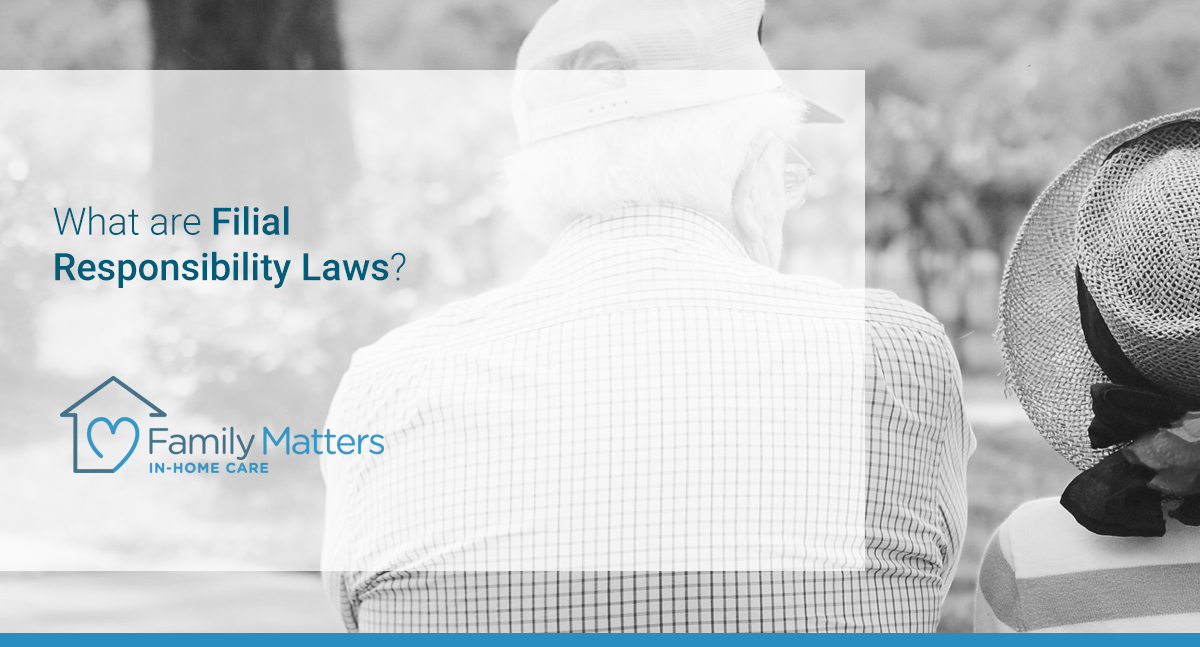
What are Filial Responsibility Laws?
One of the biggest issues facing families in how to care for an elderly parent is the cost of care. Nursing homes and in-home care providers try to be flexible with costs, but there is still a long-term financial responsibility that can put a strain on families.
For children considering how and where to place their elderly parent, they should be aware of their potential liability for payment under the filial responsibility law.
What Are Filial Responsibility Laws?
Filial responsibility laws are laws that impose a duty upon children to pay for the support of their impoverished parents. While the laws vary from state to state, generally the laws state that the children have a legal obligation to pay for services required to take care of a parent if they cannot pay for those services themselves.
Children are responsible for costs like nursing home bills and bills from in-home caregivers, even if they had no role in soliciting these services in the first place. Filial responsibility laws date back to the 1600s and were more important before government programs provided a safety net for seniors.
Some states have since repealed their filial laws, but 26 states and Puerto Rico still have active filial laws on the books. Some states extend filial responsibilities even further and can require taking responsibility for grandparents or siblings.
Filial Responsibility Laws and Medicaid, Medicare, and Social Security
Programs like Medicaid, Medicare, and Social Security often support seniors who need care but are unable to pay themselves. If a senior is eligible for Medicaid care, the bills from a nursing home or in-home caregiver will be covered, making the filial responsibility law irrelevant.
In the vast majority of cases, senior expenses are covered by one of these programs. However, there are occasional instances where seniors do not qualify for Medicaid, and the filial law will kick in. In addition, government programs do not always cover 100% of care.
If a senior requires specialized care, in some cases, there is a leftover bill that is not covered. In these cases, the filial responsibility laws require that the children cover the extra expense.
Enforcement of Filial Responsibility Laws
All children of an elderly parent are required to contribute to the care costs. When determining who pays what, courts will generally take into account the ability to pay. For example, an impoverished adult generally will not be treated the same as a wealthy adult in determining payment responsibilities.
In most cases, filial responsibility laws are dealt with in civil court. Most often, nursing homes or in-home care providers will file a civil suit against the children for unpaid bills.
If there is a filial responsibility law on the books and the children are in a position to pay, a court will order payment from the children. In a few states, failure to pay can be considered failure to take care of their parents, which can carry a criminal penalty.
Options for Families to Pay for Care
No family wants to find themselves on the receiving end of a filial responsibility case. Even for small caregiving bills, resolving cases in court can take months or even years and can incur additional expenses along the way. Families have many options to help pay for care for an elderly loved one.
There are many government programs that provide assistance, life insurance policies, and even grants from non-profit organizations. It is important for families to come together and decide on the best course of care and the best way to pay for it to ensure that their loved one is taken care of.
If you or your family member is considering in-home care as part of a plan to age in place, contact Family Matters In-Home Care today for a free consultation. Our team is dedicated to supporting your family and helping older adults enjoy life in the comfort of their own home for as long as possible.
Some of the services offered by Family Matter In-Home Care include: Alzheimer’s & Dementia Care, Bed & Wheelchair Transfer Assistance, Companionship, Housekeeping & Meal Preparation, Personal Care, Recovery Care, and Transportation.
Serving the San Francisco Bay Area and Greater San Diego, Family Matter In-Home Care has offices throughout California including: Campbell, CA, Roseville, CA, San Marcos, CA, and San Mateo, CA.Share This
